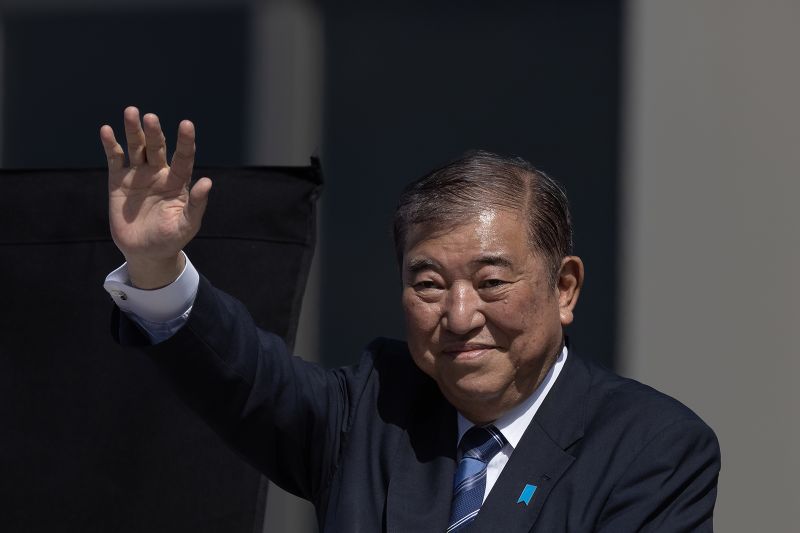Polls opened Sunday in Japan’s general election, in a test for new Prime Minister Shigeru Ishiba as he seeks voter support for his scandal-hit party just weeks after taking the role.
Ishiba, the former defense minister, called a snap election immediately after winning the leadership contest of his Liberal Democratic Party (LDP), a conservative political machine that has ruled Japan almost continuously since the party’s founding in 1955.
By calling an election, Ishiba, 67, is seeking a public mandate for the ruling LDP amid falling approval ratings and public anger over one of the country’s biggest political scandals in decades.
The funding scandal involved millions of dollars in undocumented political funds, and lawmakers allegedly lining their own pockets with kickbacks or failing to properly declare their income.
Former Prime Minister Fumio Kishida tried to contain the damage by replacing several cabinet ministers and dissolving LDP factions, essentially coalitions within the party. But he faced calls to resign and announced in August that he would not run for a second term.
His successor, Ishiba, also faces public discontent over increasing living costs, which have been exacerbated by the weak yen, a sluggish economy and high inflation.
The political veteran has pledged financial help to low-income households, a higher minimum wage, and regional revitalization, according to Reuters. He has also promised a “full exit” from Japan’s high inflation rates, vowing to achieve “growth in real wages.”
Ishiba has made strengthening Japan’s relations with the United States a priority and seeks deeper ties with allies amid growing security challenges in Asia, including an increasingly assertive China and belligerent North Korea.
Partnership with Japan has long been central to US strategy in the Asia-Pacific region, and Ishiba’s predecessor Kishida this year expanded Japan’s defense cooperation with its key ally. Ishiba has called for a more balanced relationship, including having greater oversight of US military bases in Japan, Reuters reports.
As defense minister, Ishiba was strong on deterrence as a security issue. He even proposed an Asian version of the NATO security bloc, an idea he has apparently dropped after it was rebuffed by the US.
Ishiba also supports legislation that could allow married women to keep their maiden names, and has said Japan should reduce its dependence on nuclear energy in favor of renewables.
In a political culture that prizes conformity, Ishiba has long been something of an outlier, willing to criticize and go against his own party. That willingness to speak out has made him powerful enemies within the LDP but endeared him to more grassroots members and the public.
He sits on the more progressive wing of the conservative party. His political acumen and experience in domestic and foreign policy likely allowed him to secure the top job.
Voters on Sunday will choose who fills the 465-seat House of Representatives, Japan’s lower house of parliament.
Parties are vying to win a majority of 233 seats, but there are several other significant tallies they can achieve.
A so-called “absolute stable majority” of 261 seats means the winning party or coalition has a committee chair in all of the standing committees plus a majority of committee members. This enables smoother governance and policy-making for the ruling party.
Winning 244 seats would mean the party has the same number of committee members as the opposition.
The number of seats needed for a two-thirds majority to propose constitutional amendments is 310.
Ishiba’s LDP and the New Komeito Party have again agreed to form a coalition and, before parliament was dissolved ahead of Sunday’s election, the two parties controlled the chamber with a 279-seat majority.

